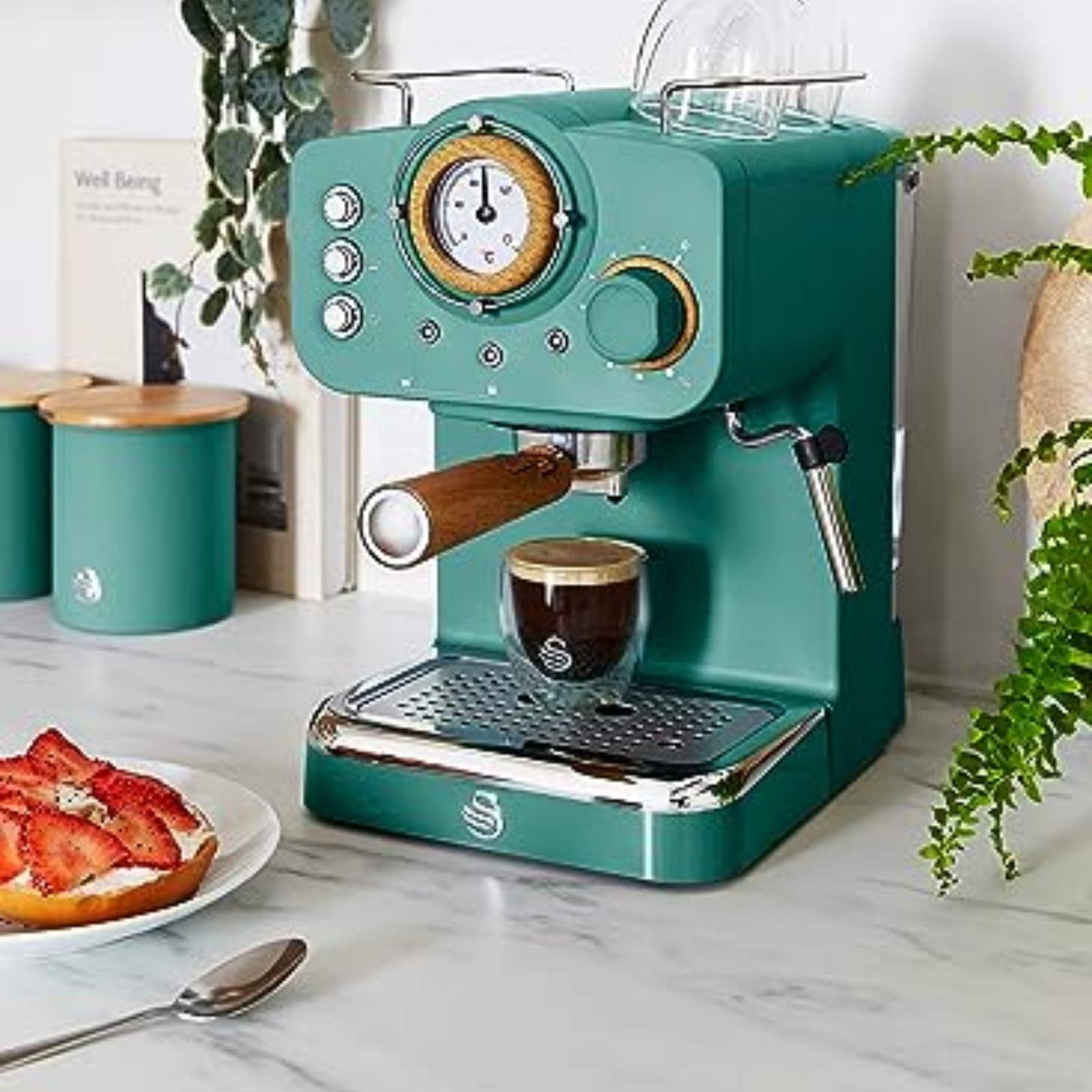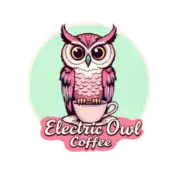Free Shipping on all U.S. orders $50+
Vintage vs. Modern Coffee Makers: Pros, Cons & Aesthetic Appeal

Coffee culture has evolved dramatically over the decades, and nowhere is this more evident than in the design and functionality of coffee makers. Whether you’re drawn to the nostalgic charm of vintage percolators or the sleek efficiency of modern espresso machines, choosing between vintage and contemporary coffee makers involves weighing functionality, aesthetics, and personal brewing preferences.
The Timeless Appeal of Vintage Coffee Makers
Vintage coffee makers, typically manufactured between the 1920s and 1970s, represent an era when appliances were built to last. These machines embody craftsmanship and durability that many modern consumers find lacking in today’s mass-produced alternatives.
Pros of Vintage Coffee Makers
Superior Build Quality and Longevity Vintage coffee makers were constructed with heavy-duty materials like thick aluminum, stainless steel, and durable glass components. Many units from decades past continue functioning perfectly today, testament to their robust engineering and quality manufacturing standards.
Distinctive Aesthetic Character The visual appeal of vintage coffee makers is undeniable. From the iconic curves of a 1950s percolator to the art deco styling of chrome espresso machines, these appliances serve as functional kitchen art that adds personality and warmth to any space.
Cost-Effective Investment Quality vintage coffee makers can often be found at thrift stores, estate sales, and online marketplaces for significantly less than premium modern alternatives. With proper maintenance, these machines can provide decades of reliable service.
Environmental Sustainability Choosing vintage coffee makers supports sustainable consumption by extending the lifecycle of existing products rather than contributing to new manufacturing demands. This approach reduces electronic waste and minimizes environmental impact.
Cons of Vintage Coffee Makers
Limited Advanced Features Vintage models lack modern conveniences like programmable timers, automatic shut-off functions, temperature control, and digital displays. Brewing requires more hands-on attention and manual operation.
Maintenance and Repair Challenges Finding replacement parts for vintage coffee makers can be difficult and expensive. Specialized repair knowledge may be required, and some components may no longer be manufactured.
Safety Considerations Older electrical appliances may not meet current safety standards. Vintage coffee makers might lack modern safety features like GFCI protection or automatic thermal cut-offs, potentially posing safety risks if not properly maintained.
Brewing Limitations Many vintage coffee makers are designed for specific brewing methods, offering less versatility than modern multi-function machines. This can limit experimentation with different coffee styles and brewing techniques.
Modern Coffee Makers: Innovation Meets Convenience
Contemporary coffee makers incorporate cutting-edge technology, user-friendly features, and scientific brewing principles to deliver consistent, high-quality results with minimal effort.
Pros of Modern Coffee Makers
Advanced Brewing Technology Modern coffee makers utilize precise temperature control, optimal extraction timing, and engineered water distribution systems to maximize flavor extraction. Features like pre-infusion and pulse brewing create superior coffee quality compared to basic vintage methods.
Convenience and Automation Programmable features allow users to schedule brewing times, adjust strength settings, and enjoy hands-free operation. Smart coffee makers can even be controlled remotely via smartphone apps, integrating seamlessly with modern lifestyles.
Versatility and Customization Many contemporary machines offer multiple brewing options, from espresso and cappuccino to cold brew and pour-over styles. This versatility allows coffee enthusiasts to explore different brewing methods with a single appliance.
Safety and Reliability Modern coffee makers incorporate comprehensive safety features including automatic shut-off, thermal protection, and compliance with current electrical safety standards. These features provide peace of mind during daily use.
Cons of Modern Coffee Makers
Higher Initial Investment Quality modern coffee makers, particularly specialty and commercial-grade models, require significant upfront investment. Premium features and advanced technology command premium prices.
Shorter Lifespan Expectations Many contemporary appliances are designed with planned obsolescence in mind, featuring more complex electronic components that may fail sooner than mechanical vintage alternatives. Plastic components are more prone to wear and breakage.
Generic Aesthetic Appeal While functional, many modern coffee makers prioritize efficiency over distinctive design character. The prevalence of black plastic and stainless steel can result in appliances that lack personality and visual interest.
Technology Dependency Advanced features require more complex maintenance and are susceptible to electronic failures. Software glitches, sensor malfunctions, and digital display problems can render sophisticated machines unusable.
Aesthetic Considerations: Style Meets Function
The visual impact of coffee makers extends beyond mere functionality, influencing kitchen design and personal expression. Understanding how vintage and modern aesthetics complement different interior styles helps inform purchasing decisions.
Vintage Coffee Maker Aesthetics
Vintage coffee makers excel in kitchens embracing retro, farmhouse, industrial, or eclectic design themes. Their authentic patina, unique proportions, and historical character create focal points that spark conversation and evoke nostalgia. The warm metals and classic silhouettes of vintage machines complement natural materials like wood and stone, creating cohesive vintage-inspired spaces.
Modern Coffee Maker Aesthetics
Contemporary coffee makers align with minimalist, contemporary, and high-tech kitchen designs. Sleek lines, digital interfaces, and neutral color palettes integrate seamlessly with modern appliances and clean architectural elements. Many modern machines feature thoughtful industrial design that emphasizes functionality while maintaining visual sophistication.
Making the Right Choice for Your Kitchen
Selecting between vintage and modern coffee makers depends on personal priorities, brewing habits, and lifestyle requirements. Consider these factors when making your decision:
Brewing Frequency and Volume: Heavy daily use may favor modern machines with automated features and consistent performance, while occasional brewing might suit the hands-on nature of vintage equipment.
Kitchen Design Integration: Evaluate how different aesthetic styles complement your existing kitchen design and personal taste preferences.
Technical Comfort Level: Consider your willingness to engage with manual brewing processes versus preference for automated convenience.
Budget Considerations: Factor in both initial costs and long-term maintenance expenses for either option.
Environmental Values: Weigh the benefits of supporting sustainable consumption through vintage purchases against the energy efficiency of modern appliances.
Conclusion: Brewing Your Perfect Choice
The decision between vintage and modern coffee makers ultimately reflects personal values, aesthetic preferences, and brewing priorities. Vintage machines offer character, durability, and environmental consciousness, while modern alternatives provide convenience, consistency, and advanced features.
Both categories produce excellent coffee when properly operated and maintained. The best choice is the one that aligns with your lifestyle, enhances your kitchen’s aesthetic appeal, and brings joy to your daily coffee ritual. Whether you’re drawn to the nostalgic charm of a classic percolator or the precision of a modern espresso machine, investing in quality equipment that matches your needs will reward you with years of satisfying coffee experiences.
Consider visiting local antique shops, specialty coffee retailers, and online marketplaces to explore both vintage and modern options firsthand. Testing different machines and comparing their performance will help you make an informed decision that perfectly suits your coffee preferences and lifestyle requirements.
